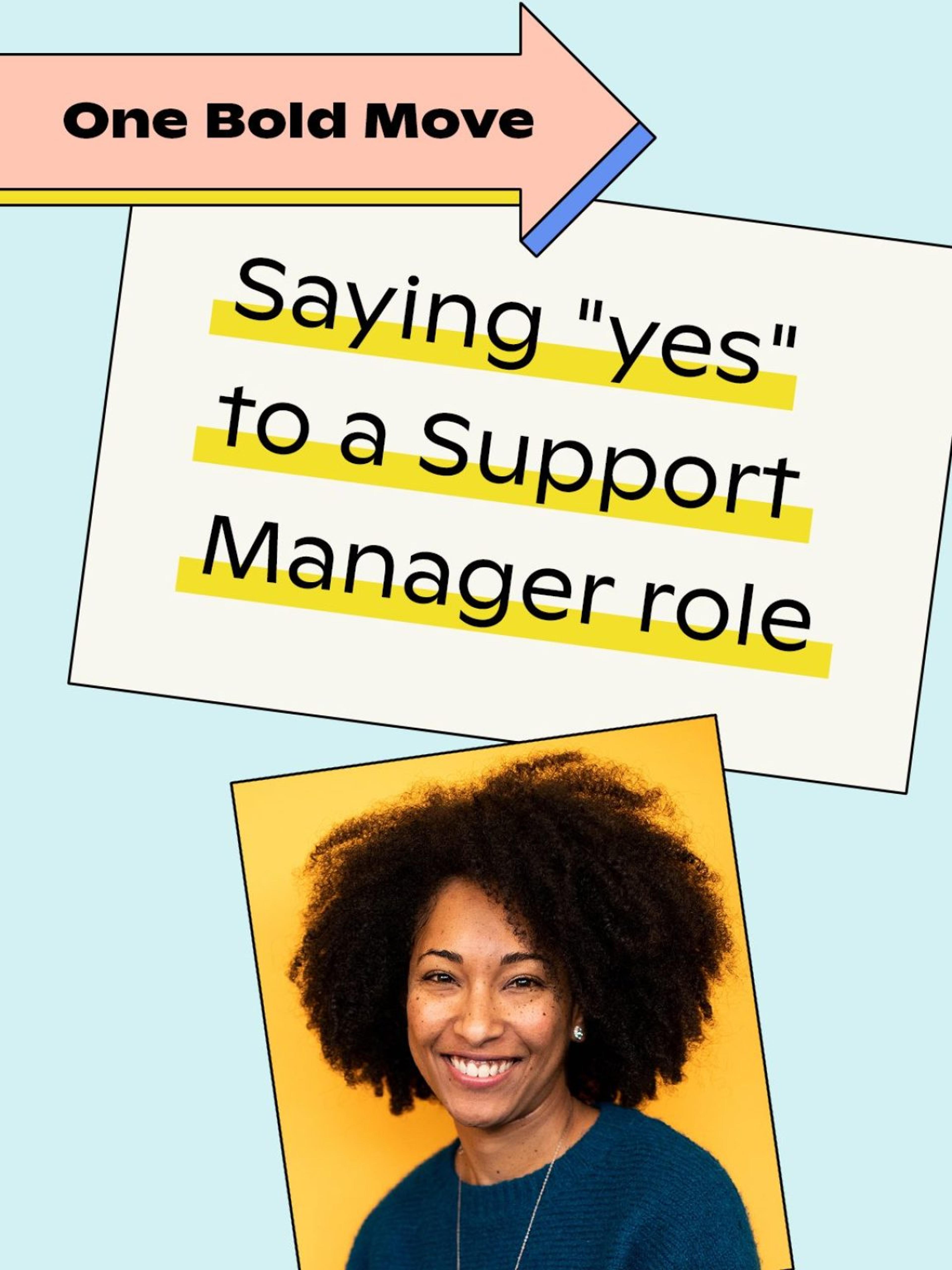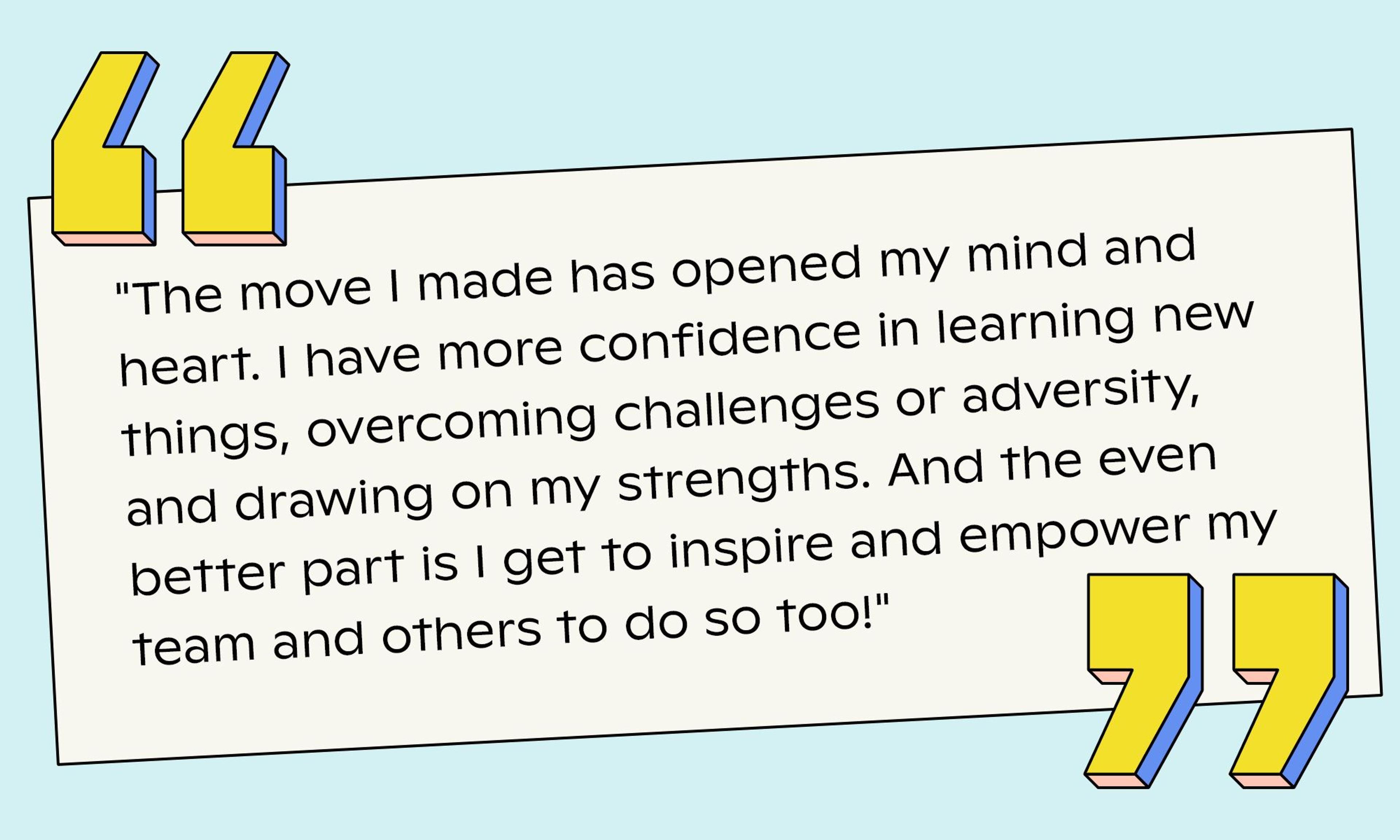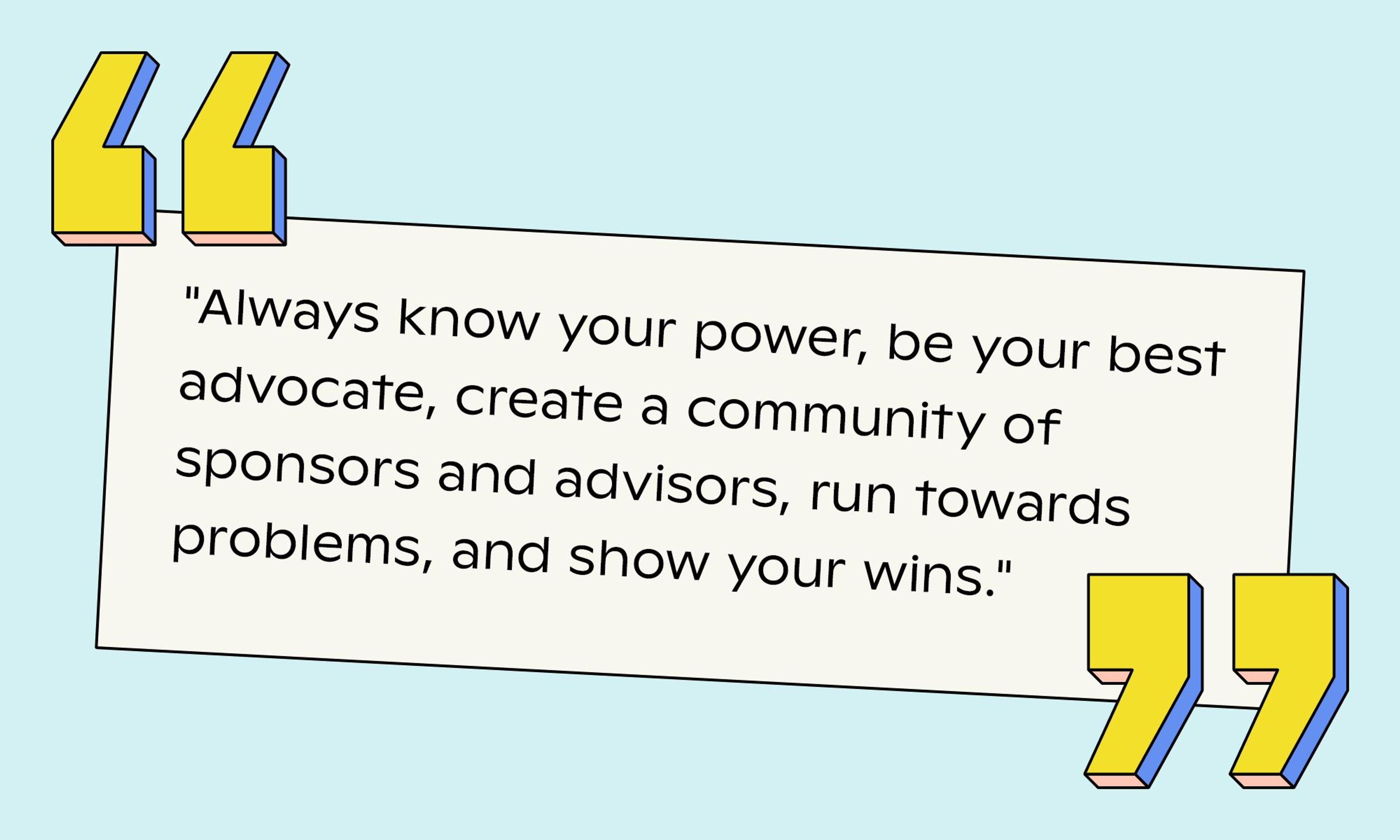It takes a great deal of courage to pursue a career you love. Each step from college to the workplace takes confidence: navigating new waters at school, joining organizations, sometimes switching majors or even universities to pursue your goals. Eventually, all of this effort culminates in putting yourself out there by applying for internships and jobs. However, your chances to make daring decisions won't stop when you accept your first job offer.
That's why, throughout this school year, we'll be highlighting the professional trajectories of folks who've been there: people who've made bold moves and seen them transform into dream careers. No career journey is linear, and it's often the surprising twists away from your planned path that can be the most rewarding.
We hope their stories will inspire you to be bold.
First up in our "One Bold Move" series is Jordan Pedraza, the Director of Global Support, Trust & Safety, Documentation here at Handshake. Ahead, she shares her journey and important lessons learned along the way.
Meet Jordan!
Name: Jordan Pedraza
University: Pomona College, class of 2009
Majors: Music and Sociology
Location: Oakland, CA
Current job: Director of Global Support, Trust & Safety, Documentation — Handshake
Notable past roles:
- Research Assistant-Programmer — Mathematica Policy Research
- Program Manager — Google for Education
- Head of Community — Remind
Hobbies: juggling, reading, singing, piano, biking, and travel
What is one bold move that you've made along your career path?
"This is a really hard one because I think every step you take in your career is a bold move. Change is hard and scary. It takes courage to take a leap into a new role, team, company, industry, or function.

That said, I would say pivoting into a Support Manager role is the boldest move that stands out. It was my first time being a people manager and my first time working in Support.
I learned that I can learn. I learned that every role and experience we have adds up to who we are and what we can bring to our future. The skills I learned in account management, community management, and training are very relevant to my work in Support.
Functions and roles can surprise us too—most often what you see on the outside doesn't reflect the day-to-day. I didn't realize how cross-functional Support has to be and how Support Leadership involves analytics, tools, and business operations.
The move I made has opened my mind and heart. I have more confidence in learning new things, overcoming challenges or adversity, and drawing on my strengths. And the even better part is I get to inspire and empower my team and others to do so too!"
What does an average work day look like for you, especially now?
"Ha, I wish average days were a thing! Or maybe not, because I love variety and change.
Pre- and post-COVID, typically half to most of my days are meetings and those can be with my team, cross-team leaders from other functions/departments, and/or one-on-ones with team members. In those meetings we're reviewing upcoming plans, reminders, preparing for launches/updates, strategizing for future plans, responding to challenges, and collaborating on how we can help our customers and each other more effectively.
Outside of meetings, some days are reporting and analyzing data, preparing trend reports, preparing for internal or external presentations, monitoring ticket queues, assisting colleagues with product/support-related questions, and reviewing past tickets or team activities and developing plans for trainings or tools."
Did you always know you wanted to go into ed-tech?
"Yes and no. I've always been passionate about teaching, learning, and education. Originally, I thought I wanted to be a teacher or professor, but as I discovered technology I was more drawn to innovating how teaching and learning is done and impacting as many learners as possible. I first learned this when I was a student tech consultant at Pomona for a History professor using Blogger for oral histories. I confirmed education-technology was the right career move for me when I joined Google for Education getting to help colleges, universities, K-12 school districts, and ministries of education use technology to transform teaching and learning."

What do you love about your job?
- "I love that I always have to be learning and helping others to keep learning too. We're always launching new features, products, or updates and to support all of that it keeps you on your toes. You really learn how you learn and how others learn.
- I love getting technical and deep in products as you get to be a detective. It's so satisfying when you find out or confirm why something happened, help a customer find a solution, or find a bug.
- And I love that my job calls for a diverse set of skills, tasks, and types of work. Sometimes I'm a support agent when I help my team with tickets or do tickets myself. Other times, I'm a financial analyst when I update our staffing model and forecast future ticket volume. Sometimes I'm a marketer thinking through webinar content or a product manager reporting on common trends and suggestions for ideas. I feel like I have 10 jobs but it keeps me sharp and I get to work with so many teams and people."
What would you do differently if you could go back to school?
"I wish I took a broader range of courses and got more technical experience. I went to a liberal arts school and I'm proud that I'm a generalist and love critical thinking. I'd have taken courses in areas like Politics, Religious Studies, Computer Science, Art, and Linguistics to broaden my perspective and experiences. I think I'd still end up in education-technology, but I'd have a richer background to inform my role and how I work with others."
Do you have any tips for gaining exposure in your industry?
"Community is everything. The beauty of our world today is that it's easy to connect with others around the world across so many topics. Particularly for Support and Customer Experience I recommend checking out Support Driven and Elevate CX. These organizations have Slack groups and a newsletter to keep abreast of current news, trends, job opportunities, events, and most importantly dialogue. Every day everyone is asking and sharing about their day to day and helping each other. From there you can connect with people or attend events to learn how to get into the Support/CX space and develop experience for roles.
The other resource I recommend isEdSurge, it's like the TechCrunch for education technology. There's a newsletter, job board, and index to learn more about the types of companies, functions, and customers you can work with. And they run events and bring the community together for learning and sharing too."

Are there any ideas you held about this path that you've discovered are incorrect?
"Whenever I heard of Support I either thought of 'ticket, ticket, ticket’ and a robotic kind of work, or I thought [my own] terrible customer service experiences. I was so wrong. Yes, there are repeated processes or workflows, and sometimes you have angry customers or frustrating experiences. But most of the time you get to be a consultant, advisor, confidant, detective, and expert. It's very empowering to solve so many problems each day."
What are some challenges you've faced in your career, and how did you navigate them?
"Early in my career I thought I might be interested in people management, but I didn't know how to convey that and make myself a strong candidate for consideration. I would notice other colleagues getting tapped for people manager roles, so I assumed I would have to wait and hopefully be picked one day. I realized that I have to speak up, be my own advocate, and seek and cultivate sponsors in my career to get more opportunity and responsibility.
So I did just that: when I felt I wouldn't learn as much in individual contributor roles around customer experience (after eight years) I told my manager I was interested in people management, observed areas I could help lead or improve, and just got involved. And in parallel I proactively shared my ideas, plans, and impact very broadly. This all helped me get to where I am today.
Always know your power, be your best advocate, create a community of sponsors and advisors, run towards problems, and show your wins."
